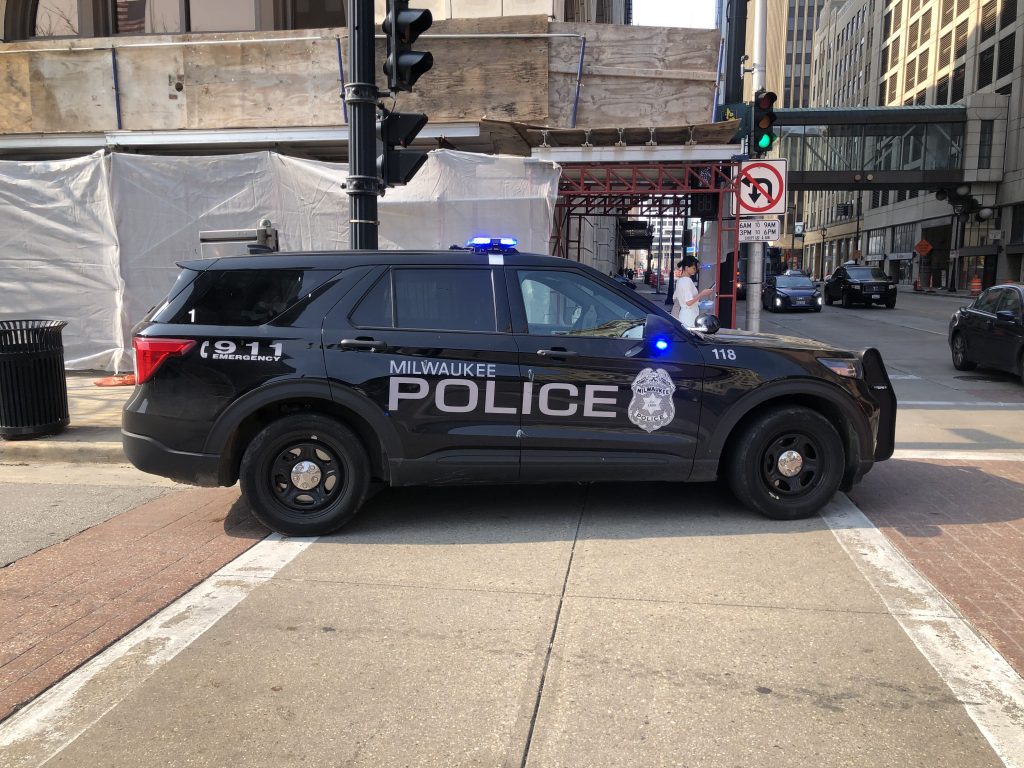Milwaukee Police Arrests Have Plummeted
New report finds 82% decline in past decade as citizen satisfaction with traffic enforcement has declined.
A new report finds that arrests by the Milwaukee Police Department (MPD) have plummeted by 82.3% over an 11-year period, dropping from 51,176 arrests in 2012 to just 9,061 in 2023.
The report by the Wisconsin Policy Forum (WPF) found this was the largest decline in arrests over this period among 12 peer cities (with a population between 350,000 and 750,000) including Cleveland, Seattle, Kansas City, Denver, Detroit, Nashville and Memphis; Aurora and Colorado Springs in Colorado; Virginia Beach, Virginia; and Wichita, Kansas. Milwaukee has gone from having the highest arrest rate (85.5 arrests per 1,000 residents) in 2012 to one of the lowest in 2023 (16.1 arrests per 1,000 residents), higher than only Seattle (10.8) and Cleveland (9.3).
Milwaukee police contacts with citizens also plummeted at a similar rate during this period: in 2023, the MPD made 27,715 traffic stops, 81.5% fewer than in 2015, and conducted only 708 subject stops last year, a 98.5% decrease from 2015.
“Our analysis shows that policing in Milwaukee has changed markedly over the last decade,” the WPF report noted. “Police are now coming into contact with residents at significantly lower rates than they used to, and far fewer arrests are being made.”
Most of this decline involves minor crimes. There was a tremendous drop in Summons and Citations arrests, which fell by 95.7% from 36,055 in 2012 to 1,568 in 2023. “Crimes that saw a high concentration of these types of arrests include disorderly conduct, drug abuse and equipment, and destruction and vandalism,” the study noted.
Still, as the decline in arrests occurred there was a marked decrease in citizen satisfaction with enforcement of traffic laws by the Milwaukee Police Department: in 2022, only 41.2% of survey respondents were “very” or “somewhat” satisfied, a decline of 34.8 percentage points since 2014. “Additionally, only 39.9% of survey respondents in 2022 felt that the city of Milwaukee was ‘very’ or ‘somewhat’ safe, compared to 61.2% in 2014 and 54.3% in 2019,” the report found.
The report offers numerous possible causes for the decline in arrests, but the last one might be the most important: the change in police chiefs from Edward Flynn to Alfonso Morales in 2018, then to Jeffrey Norman in 2020: “of most relevance here may be Flynn’s emphasis on the use of data to deploy resources and gauge officer performance. Several interviewees noted that officers’ performance during Flynn’s tenure was evaluated, in part, by activity levels such as the numbers of stops and arrests they made,” the study noted.
Flynn was highly influenced by the so-called “Broken Windows” theory of policing, which argues that small offenses can create a sense of disorder in a neighborhood. But his aggressive policing strategy was criticized for disproportionately detaining minority citizens.
Flynn and the MPD were sued by the ACLU in 2017, which claimed the department’s stop-and-frisk program that “targeted tens of thousands of people without reasonable suspicion of criminal activity, primarily driven by racial profiling.” The MPD ultimately agreed to the Collins Settlement in 2018, which required police to provide more concrete justifications and record data points “for each traffic stop, field interview, and no-action encounter” that takes place. “This has almost certainly contributed to the accelerated reductions in both stops and arrests in recent years,” the report noted.
The WPF suggests the decline in traffic stops “from what appeared to be extremely high levels a decade ago” appears to be a “positive development.” But the issue of car thefts and a significant increase in reckless driving has been a sore point with both citizens and city officials, with Mayor Cavalier Johnson declaring it a public safety crisis in 2021 as his first act in office.
Johnson offered this comment on the new study: “Increasing public safety if a top priority for me, and my approach includes both prevention and accountability. Arrests are one form of accountability, so the report raises concerns. That said, crime numbers are markedly down over the last few years. That’s the most important measure of public safety.”
As the mayor noted, overall crime has been declining in Milwaukee: reported offenses fell from 64,116 in 2012 to 45,173 in 2023 – a decline of 29.5%,” the report found. ‘This logically would have contributed to the decline in arrests,” the WPF noted.
Other factors that may have contributed to the decline in arrests, the report suggested:
-“a nationwide shift in policing tactics after the murder of George Floyd and several other highly publicized incidents involving alleged excessive use of force by police.” The report cited an analysis of traffic stops conducted by the New York Times which found significant declines in traffic stops by both large and small city police departments starting in 2018 or 2019 and persisting into 2023.
-“Declines in sworn staff and unfilled detective positions have diminished MPD’s capacity to make arrests and stops. From December 2018 to May 2024, there was a 16.6% decline in the number of sworn staff actively employed by MPD…
-Homicide, aggravated assault, and motor vehicle theft all surged in Milwaukee beginning in 2020. While violent crimes make up a small fraction of all reported offenses, the response to, and investigation of, these crimes require a significant amount of police resources…
-Since 2012, on a per capita basis, Priority 1 calls for service have increased by nearly a third, diminishing MPD’s capacity to conduct proactive policing, as logged instances of proactive policing activity have fallen from nearly 368,000 in 2012 to just under 80,000 in 2023.”
The drop in arrests in Milwaukee was not just linked to the pandemic, the report found, as there was a year-over-year decline in arrests of at least 10% in eight of the last 11 years.
The report concludes that the decline in arrests may reflect “positive changes to the ways officers interact with citizens on a daily basis,” but may also point to a problem: given that the decline exceeds those seen in most peer cities, they “raise the question of whether policymakers should consider steps that will at least halt or perhaps to some extent reverse these trends.”
The report was funded by the Greater Milwaukee Committee and the Argosy Foundation.
Urban Milwaukee also reached out to the Milwaukee Police Department for comment and has not heard back as of publication.
If you think stories like this are important, become a member of Urban Milwaukee and help support real, independent journalism. Plus you get some cool added benefits.






















